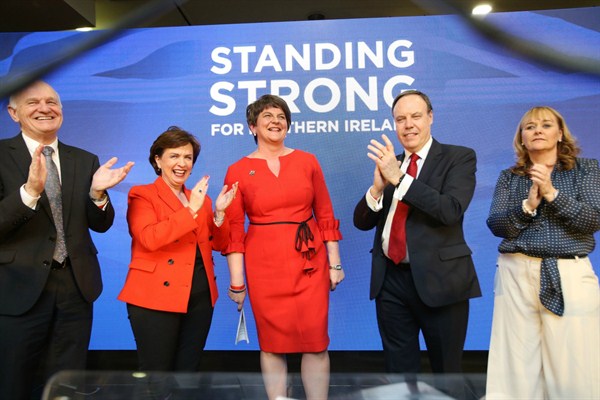BELFAST, Northern Ireland—The deadlocked political situation in Northern Ireland shows no sign of ending, at least this side of Christmas. The region’s two main parties—the conservative Democratic Unionist Party, or DUP, and left-wing, nationalist Sinn Fein—still cannot reach an agreement to restore a devolved power-sharing government, which was brought down by a domestic scandal in January. The crisis has been deepened considerably by the prospects of a British exit from the European Union that calls into question the spirit of the Good Friday Agreement of 1998 that ended three decades of violence between nationalists and unionists. That deal, which has been the basis of the uneasy peace that has held in this divided society ever since, now faces its toughest test to date.
Northern Ireland’s nationalist community, which voted overwhelmingly to remain in the EU in last year’s Brexit referendum, favors special arrangements in any Brexit deal that would keep Northern Ireland in the Customs Union and, possibly, the European Single Market. Nationalists want to avoid at all costs a “hard border” between Northern Ireland and the Republic of Ireland. The prospect of a return to the dark days of border checks and controls has fed speculation about a future referendum on Irish unity—and the possibility that it could pass. In recent days, the former U.S. envoy to Northern Ireland, Richard Haass, has added his voice to the background chatter.
Unionists in Northern Ireland resent such loose talk of future Irish unity and squarely blame Sinn Fein for the mothballing of Stormont, which houses the Northern Ireland Assembly. On the surface, the DUP’s pivotal position in Westminster, where it is in effect propping up Theresa May’s Conservative government in return for increased public spending in Northern Ireland, would seem to give Unionists a strong hand to play. Looked at from a different angle, it appears much more like a short-term palliative that offers no clear answer to the challenges of the future.

